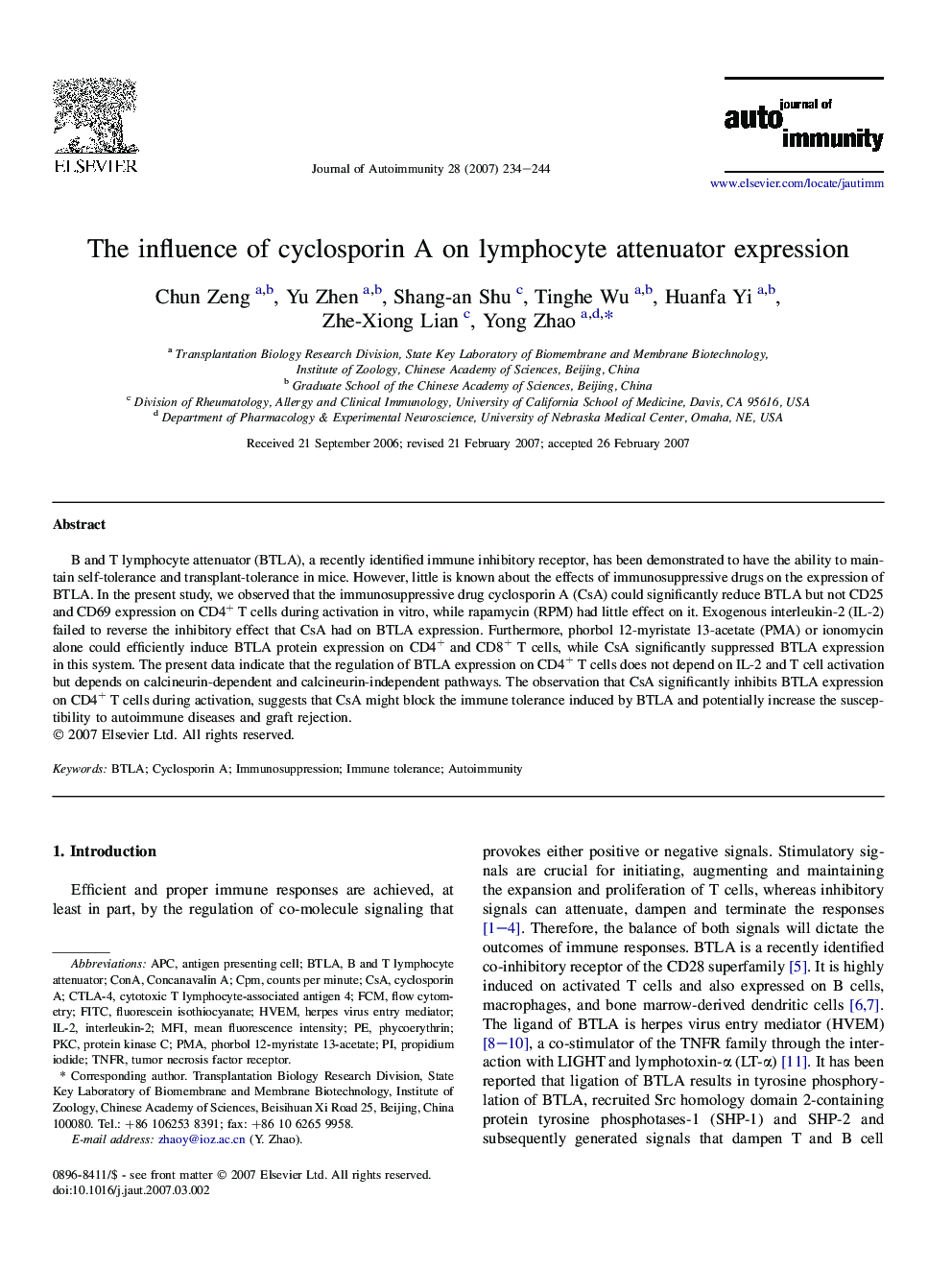| Article ID | Journal | Published Year | Pages | File Type |
|---|---|---|---|---|
| 3368495 | Journal of Autoimmunity | 2007 | 11 Pages |
B and T lymphocyte attenuator (BTLA), a recently identified immune inhibitory receptor, has been demonstrated to have the ability to maintain self-tolerance and transplant-tolerance in mice. However, little is known about the effects of immunosuppressive drugs on the expression of BTLA. In the present study, we observed that the immunosuppressive drug cyclosporin A (CsA) could significantly reduce BTLA but not CD25 and CD69 expression on CD4+ T cells during activation in vitro, while rapamycin (RPM) had little effect on it. Exogenous interleukin-2 (IL-2) failed to reverse the inhibitory effect that CsA had on BTLA expression. Furthermore, phorbol 12-myristate 13-acetate (PMA) or ionomycin alone could efficiently induce BTLA protein expression on CD4+ and CD8+ T cells, while CsA significantly suppressed BTLA expression in this system. The present data indicate that the regulation of BTLA expression on CD4+ T cells does not depend on IL-2 and T cell activation but depends on calcineurin-dependent and calcineurin-independent pathways. The observation that CsA significantly inhibits BTLA expression on CD4+ T cells during activation, suggests that CsA might block the immune tolerance induced by BTLA and potentially increase the susceptibility to autoimmune diseases and graft rejection.
